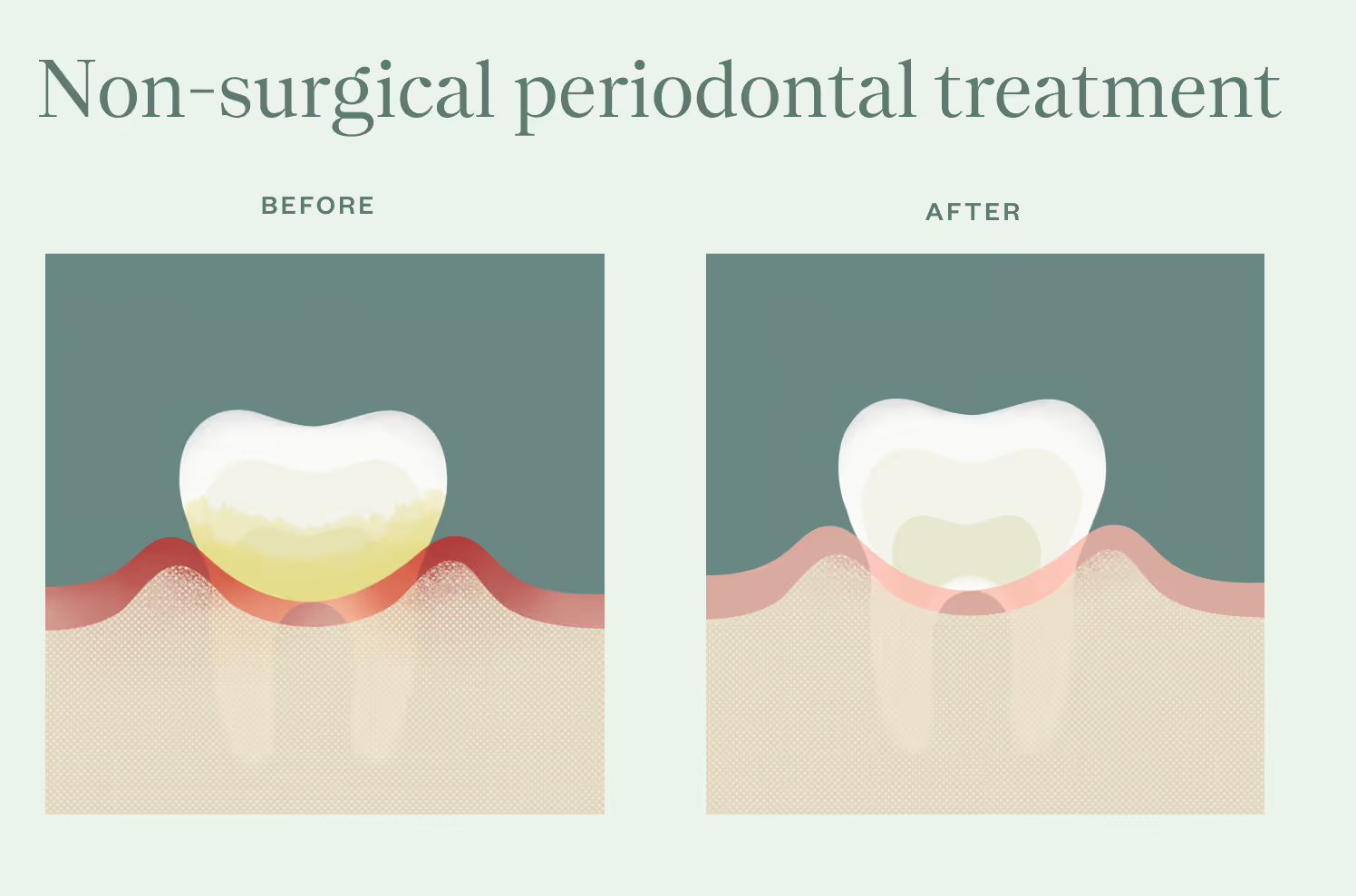Periodontitis: The Most Common Dental Disease You’ve Never Heard Of
Periodontitis affects over 47% of adults over 30 in the United States, and it can lead to tooth loss. Yet few people know what it is or how to treat it.

You’ve probably heard of gingivitis—or gum disease—from a million mouthwash ads. But you may not have heard of periodontitis.
Think of the two as a progression. If bacteria builds up under the gum line, your gums will become sensitive and inflamed. Some of the most common signs of gingivitis are bad breath and bleeding gums when you brush. That’s called gingivitis, and it represents the early stages of gum disease.
If gingivitis isn’t treated, your gum tissue can start to pull away from the structures that support it, and you may suffer bone loss. Ultimately your teeth may loosen or fall out. That’s called periodontitis.

Periodontitis is a serious disease
Even though it affects almost half of American adults over 30, periodontitis isn’t something that should be taken lightly. It’s a major threat to your oral health that can cause significant discomfort. Advanced periodontitis—periodontitis that has progressed to its latest stages—can require invasive, costly surgical interventions like bone and soft tissue grafts.
Periodontitis can’t be cured, but it can be controlled through a combination of diligent at-home care and non-surgical periodontal treatment, a procedure we offer at our studios.
What is non-surgical periodontal treatment?
If you have periodontitis, a typical dental cleaning won’t be helpful, because it doesn’t go far enough below the gum line. It can actually be harmful by allowing bacteria buildup to remain trapped where brushing and flossing can’t reach.
That’s where non-surgical gum treatment comes in. It’s a targeted deep cleaning that removes plaque and tartar underneath your gums in areas that can’t be accessed during a typical cleaning.
After your treatment is complete, you’ll manage your periodontitis at home with good oral hygiene practices, including brushing and flossing daily.

Isn’t periodontitis a disease of older people?
People who have heard about periodontitis often think it’s a disease that only older people get. But that’s a misconception. It’s true that the prevalence of periodontal disease increases with age: 70.1% of adults 65 years and older have periodontal disease, per the Centers for Disease Control and Prevention (CDC). But almost half of American adults over 30—47.2%—have periodontitis, showing that it’s very much a disease of the young as well.
How long does non-surgical periodontal treatment take, and what does it cost?
Because non-surgical periodontal treatment is more thorough than a typical cleaning, it requires more time to complete. To be sure we have enough time, your treatment plan may require another one to two visits. Similarly, because this treatment is more complex than a typical cleaning, it may not be fully covered by your insurance, and you may have a higher out-of-pocket cost.
We get that it’s not a great feeling to find out that you have to spend more time and money on a medical issue. (And, like any disease, periodontitis is a medical issue.) But ignoring periodontitis will end up creating more complex problems in the future that are far more time-consuming and expensive to deal with. We want to help you avoid that.
READ MORE: My Dentist Said I Can't Get A Normal Cleaning. Why?
How can I be sure I need this?
If you’re new to Tend and your prior dentist never diagnosed you with periodontitis at any of your checkups, we know this can be a lot to process. We want to assure you of two things.
First, Tend practices evidence-based dentistry that’s rooted in the latest clinical research. We have an ethical duty to treat the medical issues we see, and we always adhere to the American Dental Association’s standards.
Second, our dentists don’t make a commission on procedures. They only present treatment options you need. You can decide to proceed with any treatment recommendations confident that your interests and your dentists’ are aligned.
Periodontitis is a serious disease—and needs to be treated
Take advantage of your dentist’s diagnosis to halt your disease before it advances—and restore your mouth to health.




